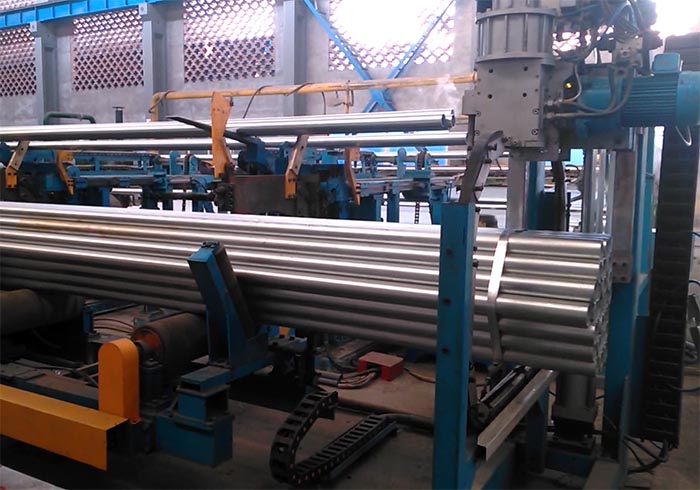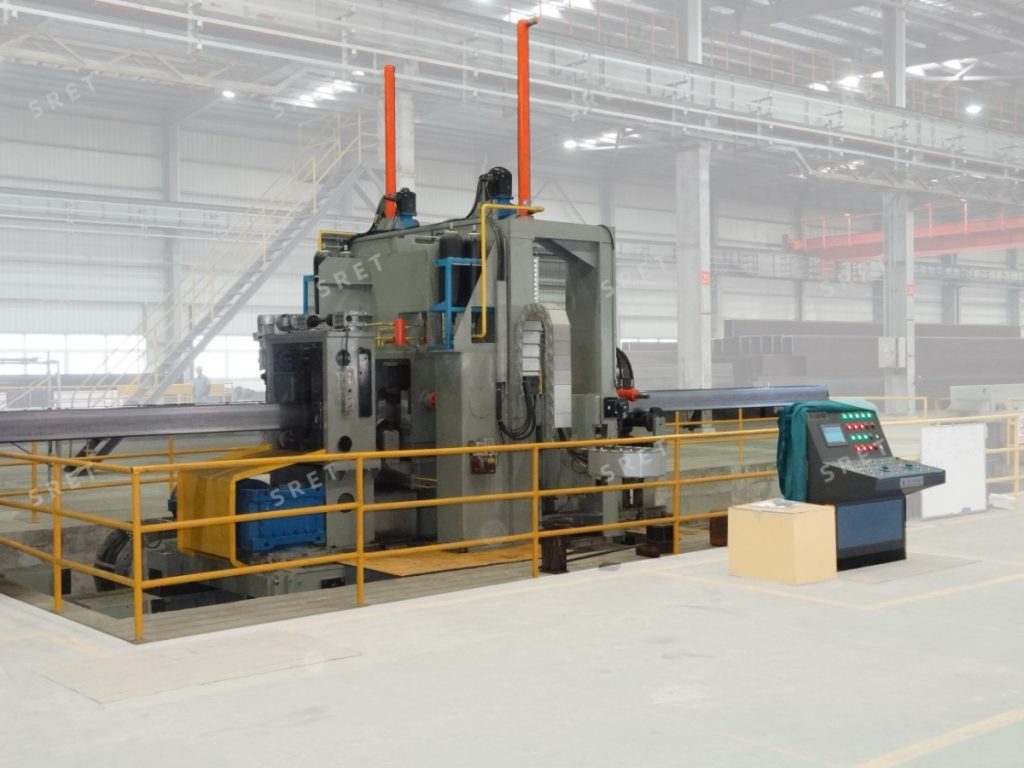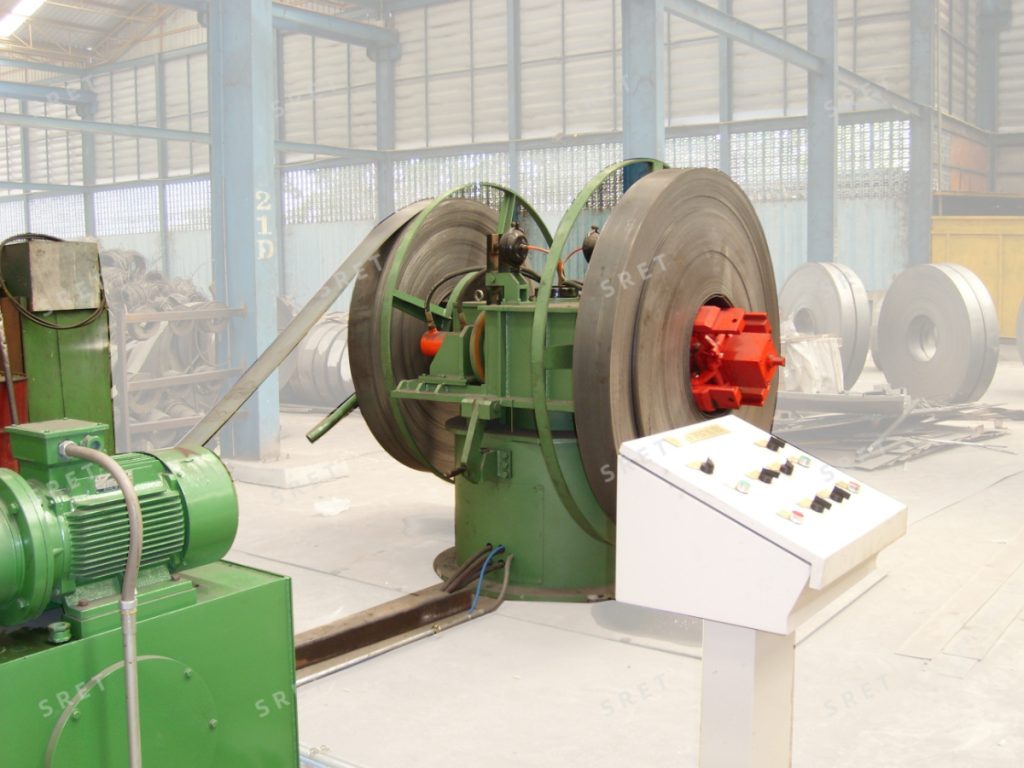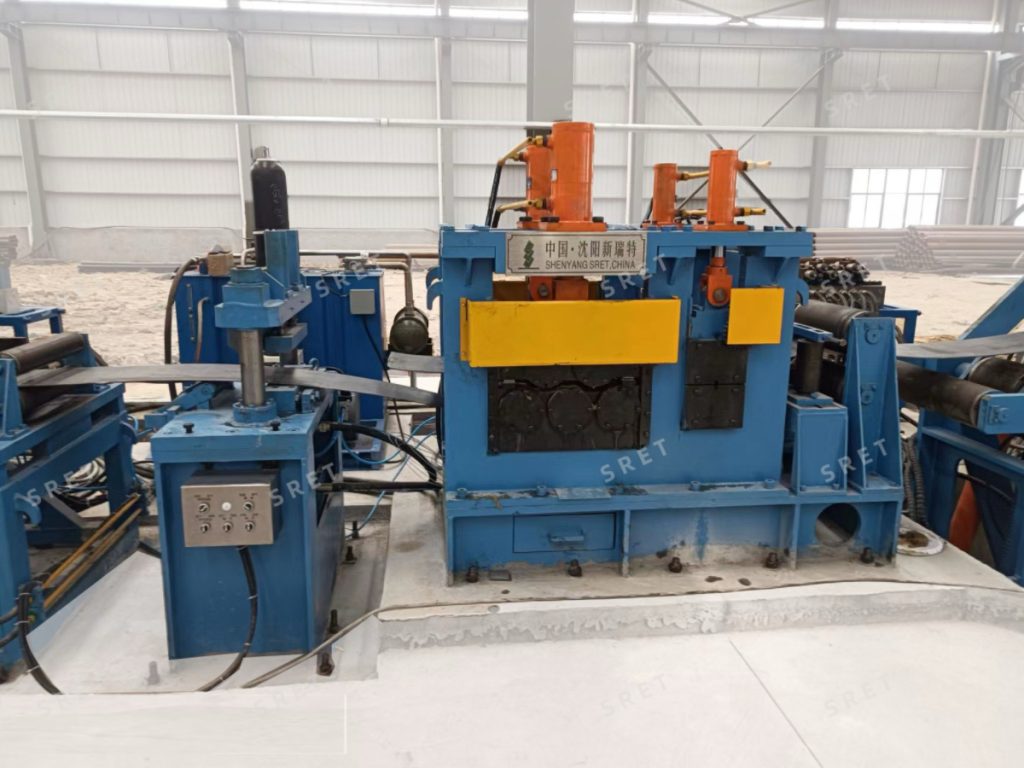
The global demand for welded steel tubes continues to surge across industries from oil and gas to construction, driving the need for advanced ERW tube mill machine technology. Electric resistance welding has revolutionized pipe production by providing faster, more uniform, and scalable manufacturing compared to traditional seamless methods. With production speeds reaching 80 meters per minute and the ability to process everything from small-diameter pipes to large industrial applications, selecting the right erw tube mill machine manufacturer becomes crucial for business success.
Whether you’re looking to establish a new production facility or upgrade existing equipment, understanding the landscape of tube mill machines, their capabilities, and the manufacturers behind them is essential. This comprehensive guide examines leading suppliers, cutting-edge technology, manufacturing processes, and critical selection criteria to help you make informed decisions about your metallurgical equipment investment.
The global market for tube mill machines is dominated by several key players who have established themselves through decades of innovation and reliable after sales service. These professional manufacturer companies combine extensive experience with advanced technology to provide turnkey projects across diverse industrial applications.
KINGREAL ROLL FORMER stands out as a Chinese manufacturer with over 20 years of experience specializing in customized ERW solutions. The company has built its reputation on delivering high-quality tube mill line systems that meet specific production requirements across various industries. Their expertise spans from basic pipe mill machine setups to complex automated production lines capable of producing different shapes and sizes.
The company’s strength lies in its ability to provide turnkey projects that include everything from initial design to final installation and commissioning. Their tube mills are widely used in construction, automotive, and infrastructure projects, with a particular focus on precision forming and consistent quality output.
New Victor represents a high-tech enterprise with more than 30 years in design and production of ERW tube mill equipment. The company holds an impressive portfolio of 30+ patents, reflecting their commitment to technological innovation and continuous improvement in tube mill technology.

New Victor’s manufacturing capabilities are particularly noteworthy, with their systems designed to handle a large number of production scenarios. Their mills can efficiently process carbon steel, stainless steel, and specialized alloys, making them suitable for diverse industrial applications from oil and gas to pharmaceutical manufacturing.
The company employs 30 R&D members dedicated to advancing electric resistance welding technology and developing more efficient production systems. This investment in research has resulted in mills that offer superior precision, with some models achieving tolerances within ≤0.02mm deviation.
Hebei Taoguan Technology specializes in designing high-frequency longitudinal welded pipe units and large-diameter equipment systems. Their focus on large-scale production has made them a preferred supplier for infrastructure projects requiring substantial pipe production capacity.
The company’s tube mill machines are engineered for heavy-duty operation, with particular expertise in manufacturing systems for producing rectangular pipes and square profiles. Their equipment is widely deployed in construction projects where structural steel pipes and specialized profiles are essential.
Leading ERW tube mill machine manufacturer share several common capabilities that set them apart in the competitive marketplace:
Turnkey Project Delivery: Most established manufacturers provide comprehensive turnkey projects that include equipment design, manufacturing, installation, training, and ongoing support. This approach ensures customers receive complete solutions rather than just individual components.
Global Service Networks: Top manufacturers maintain extensive after-sales support networks, crucial for international buyers requiring local presence for maintenance, spare parts, and technical assistance. This global reach is essential given the complexity of modern tube mill systems.
Manufacturing Range Flexibility: Advanced manufacturers offer systems capable of producing pipes from small diameter applications (Φ8mm) to large diameter systems (Φ630mm), providing customers with scalable solutions that can grow with their business needs.
Quality Certification: Leading suppliers ensure their mills meet international standards including API, ASTM, EN, and JIS specifications, essential for oil and gas, automotive, and infrastructure markets.
Modern ERW tube mill technology represents a sophisticated integration of mechanical engineering, electrical systems, and metallurgical science. The electric resistance welding process uses high-frequency current, typically around 300Kw power, to achieve precise edge welding of steel strip materials formed into tubular shapes.
Contemporary tube mill machines offer impressive processing flexibility, with standard models handling strip width ranging from 78-240mm and thickness from 1.0-4.0mm. The resulting pipe diameter typically ranges from Φ25-Φ76mm in standard configurations, though advanced models extend these capabilities significantly.
| Specification | Standard Range | Advanced Models |
|---|---|---|
| Strip Width | 78-240mm | Up to 500mm |
| Strip Thickness | 1.0-4.0mm | 0.5-20mm |
| Round Tube Diameter | Φ25-Φ76mm | Φ8-630mm |
| Square Tube Size | – | 10×10-500×500mm |
| Production Speed | 10-80m/min | Up to 120m/min |
| Wall Thickness Tolerance | ±0.1mm | ≤0.02mm |
Modern tube mill machines demonstrate remarkable versatility in materials processing. Beyond traditional carbon steel applications, advanced systems efficiently handle low alloy steel, stainless steel, and even specialized materials like magnesium alloy. This flexibility allows manufacturers to serve diverse market segments from construction to high-tech applications.
The heating and forming processes are precisely controlled to accommodate different material properties. For stainless steel applications, specialized cooling systems and modified forming rolls ensure proper material handling without surface damage or contamination.
The heart of any ERW tube mill machine lies in its high-frequency welding system. Modern machines utilize solid-state welders that offer superior energy efficiency and better heat control compared to traditional vacuum tube-based systems. The welding process relies on skin and proximity effects to create localized heating at the steel strip edges, bringing them to a molten state for fusion.

This technology enables production speeds that would be impossible with other welding methods while maintaining consistent weld seam quality. The precise control over heating ensures minimal heat-affected zones and superior mechanical properties in the finished tubes.
The manufacturing process for ERW tubes involves a sophisticated sequence of operations, each critical to producing high-quality finished products. Understanding this process helps buyers appreciate the complexity and precision required in modern tube mill line systems.
The process begins with the hydraulic decoiler system, responsible for stable steel coil unwinding and precise tension control. This system ensures consistent material feeding throughout the production run, preventing variations that could affect final product quality. Advanced decoilers incorporate automatic coil splicing systems that enable continuous operation even during coil changes.
Modern tube mills incorporate sophisticated shearing and butt welding technology for continuous strip feeding. This system allows for seamless transition between steel coils, maintaining production continuity and efficiency. The butt welding process creates strong, reliable joints that can withstand the subsequent forming and welding operations.
The roll forming system represents the core of the tube mill machine, transforming flat steel strips into the desired tubular shape. Advanced systems feature quick-change capability, with some manufacturers achieving roller replacement in as little as 10 minutes. This rapid changeover capability is essential for facilities producing different shapes or sizes.
The forming rolls are precisely machined to achieve the exact profile required, with modern systems using computer-controlled positioning to ensure consistent forming pressure and shape accuracy. The gradual forming process minimizes stress in the material while maintaining dimensional accuracy.
Today’s most sophisticated tube mill machines incorporate cutting-edge technology that dramatically improves both efficiency and quality. These advanced features represent significant competitive advantages for manufacturers investing in premium equipment.
Leading manufacturers now offer five-dimensional closed-loop control systems that monitor and adjust multiple parameters simultaneously. These systems continuously optimize production conditions based on real-time feedback, ensuring consistent quality even as material properties or operating conditions change.
Modern mills incorporate Siemens S7-1500 controllers with multilingual interfaces, making operation accessible to international workforces. These systems provide comprehensive process monitoring, data logging, and predictive maintenance capabilities that reduce downtime and optimize production efficiency.
RFID chip recognition technology enables automated roller identification and setup, reducing the risk of errors during tool changes. This system maintains a database of tool specifications and automatically configures machine parameters when tools are changed, significantly reducing setup time and improving consistency.
Hydraulic locking systems for quick tooling changes represent a major advancement in tube mill technology. These systems allow rapid reconfiguration between different tube sizes or shapes, enabling manufacturers to respond quickly to changing market demands while maximizing equipment utilization.
The most advanced systems feature integrated welding, forming, and cutting modules that streamline the entire production process. This integration eliminates potential quality issues associated with material handling between separate operations while improving overall production efficiency.

ERW tube mill machines serve a diverse range of industries, each with specific requirements for tube specifications, materials, and quality standards. Understanding these applications helps manufacturers select appropriate equipment and target the most suitable market segments.
The oil and gas sector represents one of the largest markets for ERW tubes, requiring high-strength pipes for crude oil and natural gas transport. These applications demand exceptional strength, corrosion resistance, and ability to withstand high pressures. Tube mills serving this industry must meet stringent API specifications and provide consistent wall thickness throughout the pipe length.
Production requirements for oil and gas applications often involve larger diameter pipes with thicker walls, requiring mill machines with enhanced forming capabilities and higher power welding systems. The precision required for these applications often exceeds standard tolerances, making manufacturer selection critical.
Chemical processing facilities require corrosion-resistant stainless steel pipes capable of handling acids, caustic materials, and other aggressive chemicals. The tube mill machines producing for this sector must handle stainless steel grades effectively while maintaining surface finish quality that prevents contamination or bacterial growth.
The sizing section and finishing operations become particularly critical for chemical applications, as surface imperfections can create points for corrosion initiation or bacterial harboring. Advanced cooling systems and specialized forming techniques ensure optimal surface quality.
Food and beverage applications demand hygienic, smooth, non-toxic stainless steel piping systems that meet strict sanitary standards. The manufacturing process must ensure complete cleanliness and prevent any contamination that could affect food safety.
Tube mills serving this industry often incorporate specialized cleaning and finishing operations, including electropolishing or mechanical polishing to achieve the mirror-like finishes required for sanitary applications. The precision required for these smooth finishes demands advanced control systems and high-quality tooling.
Pharmaceutical manufacturing requires high-precision, corrosion-resistant pipes for medical equipment and process systems. These applications often involve exotic materials and extremely tight tolerances, pushing tube mill technology to its limits.
The quality control systems for pharmaceutical applications must be exceptionally rigorous, with 100% inspection and documentation of critical parameters. Traceability requirements often extend throughout the entire production process, requiring sophisticated data management systems.
The construction industry consumes enormous quantities of structural steel pipes and decorative applications. While quality requirements may be less stringent than pharmaceutical or chemical applications, the volume requirements and cost pressures create different challenges for tube mill operations.
Efficiency becomes paramount in construction applications, with production speed and material utilization being key performance metrics. The ability to quickly switch between different sizes and specifications allows manufacturers to respond to varying project requirements efficiently.
Selecting the right ERW tube mill machine manufacturer requires careful evaluation of multiple factors that will impact both immediate operations and long-term success. The decision involves balancing technical capabilities, financial considerations, and strategic business factors.
The technological sophistication of modern tube mill machines demands manufacturers with substantial R&D investment and technical expertise. Companies like New Victor, which employs 30 R&D members, demonstrate the commitment necessary to stay current with advancing technology and customer requirements.
When evaluating manufacturers, consider their patent portfolio, recent innovations, and ability to customize solutions for specific applications. The complexity of modern metallurgical equipment requires suppliers who understand both the engineering principles and practical manufacturing challenges.
Experience matters significantly in the tube mill industry, where subtle process variations can dramatically impact product quality. Manufacturers with 20-30+ years of experience have encountered and solved the myriad challenges that arise in diverse production environments.
Look for suppliers who can demonstrate successful installations across various industries and geographic regions. This breadth of experience indicates adaptability and problem-solving capability that will be valuable throughout the equipment lifecycle.
A strong patent portfolio indicates ongoing innovation and technological leadership. Companies holding 30+ patents, like New Victor, demonstrate sustained investment in advancing tube mill technology and developing solutions for emerging market needs.
Review recent patents to understand the manufacturer’s current focus areas and whether their innovations align with your production requirements. Patents related to automation, quality control, and efficiency improvements are particularly valuable in today’s competitive manufacturing environment.
The complexity of modern tube mill line systems makes comprehensive after-sales support essential. Evaluate manufacturers based on their global service network, response times, spare parts availability, and technical support capabilities.
Consider the manufacturer’s approach to installation, training, and ongoing maintenance support. Companies that provide comprehensive training programs and maintain local service capabilities offer significant advantages, particularly for international installations.
Manufacturers serving enterprises across diverse industries demonstrate versatility and reliability. Look for suppliers who can provide references from companies with similar production requirements and operating environments.
Customer success cases should include details about installation timelines, performance achievements, and ongoing support experiences. Direct contact with existing customers provides valuable insights into the manufacturer’s capabilities and service quality.

Investing in ERW tube mill equipment represents a significant capital commitment that requires careful planning and analysis. Understanding all aspects of the investment – from initial capital requirements to ongoing operational considerations – is essential for making sound business decisions.
Modern tube mill machines require substantial factory space, with complete production lines often exceeding 100 meters in length. The equipment footprint includes not only the mill itself but also material handling systems, quality control stations, and finished product storage areas.
Site preparation requirements include heavy-duty foundations capable of supporting the equipment’s weight and vibration, electrical infrastructure for high-power welding systems, and utility connections for cooling water and compressed air. The installation process typically requires several weeks and specialized technical expertise.
Before investing in tube mill equipment, conduct thorough market research to understand local demand for pipe products, competitive pricing, and market entry barriers. Analyze the types of pipes in highest demand and the specifications required by potential customers.
Consider seasonal variations in demand, particularly for construction-related applications, and evaluate whether your production capacity matches market absorption rates. Understanding expected profit margins helps justify the significant capital investment required.
Fixed costs for tube mill operations include building infrastructure, machinery investment, and initial working capital. A complete ERW tube mill line can cost from several hundred thousand to several million dollars, depending on automation level, capacity, and integrated processes.
Operational costs encompass staffing requirements (typically 3-8 operators per shift depending on automation level), electricity consumption (substantial due to high-frequency welding), raw material costs, and consumable items like forming rolls and cutting tools. Electricity costs can represent 15-25% of total production costs.
Comprehensive supplier evaluation should include factory visits to verify manufacturing capabilities, quality control systems, and production capacity. Observe actual equipment operation and speak directly with the manufacturer’s technical personnel to assess their competence and responsiveness.
Request detailed technical specifications, performance guarantees, and warranty terms. Compare multiple suppliers on both technical capabilities and total cost of ownership, including initial purchase price, installation costs, training expenses, and ongoing support costs.
Review the manufacturer’s financial stability and business history to ensure they will be available for long-term support. The complexity of tube mill equipment makes manufacturer longevity and stability crucial factors in the selection decision.
Consider requiring performance bonds or guarantees that ensure the equipment will meet specified production rates and quality standards. These protections help mitigate the risks associated with large capital investments in complex machinery.
The success of your tube mill investment depends heavily on selecting a manufacturer who combines proven technology, comprehensive support, and financial stability. Take time to thoroughly evaluate all aspects of the decision, as the equipment choice will impact your operations for many years.
Investing in ERW tube mill technology opens opportunities in growing markets across multiple industries. With proper planning, manufacturer selection, and market analysis, tube mill operations can provide excellent returns while serving essential industrial needs. The key lies in matching your specific requirements with the right combination of technology, supplier capability, and market opportunity.
